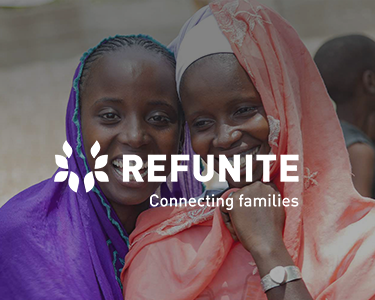
By Christopher and David Mikkelsen, Co-founders of Refugees United (REFUNITE). REFUNITE, Ericsson and partners have helped more than 350,000 forcibly displaced people onto their family reconnection platform. The award-winning platform empowers refugees to take the search for missing loved ones into their own hands, through mobile and web. In commemoration of Clinton Global Initiative’s 10 Year Anniversary, the two brothers and social entrepreneurs reflect on failures that led to radical new innovations.
For the first time since World War II, there are more than 50 million forcibly displaced people in the world. From Syria to South Sudan, a refugee crisis is unfolding in front of our eyes. During their escape from war and conflict, families often become separated. Through the years, we’ve seen firsthand what separation does to a family. There was the Somali mother, living in Dadaab Refugee Camp in Kenya, who had to say goodbye to her children, while fleeing in the middle of the night. There were the Congolese sisters who lost track of their sister during a massacre in the local village.
When families become separated, we work hard to put them back in touch in close coordination with refugees and partners from the private and the public sector. The platform is free and accessible through mobile and web. In selected countries, displaced people can access the platform without an Internet connection. REFUNITE was founded in 2008, after a personal encounter with an Afghan refugee named Mansour. He inspired us to embark on the journey we are on today.
Everyone has the right to know where their family is. Since 2008, we have assisted thousands of forcibly displaced families, with hundreds of family reconnections as a result.
Ericsson, nonprofit organizations and a global coalition of mobile network operators in Africa and the Middle East have joined the cause. They have provided access to camps, free SMS, toll free lines, and accessibility to the platform, with the overall goal of making it easier for separated families to search, connect and communicate.
We continue to believe that, by collaborating and sharing failures and lessons learned, we can become even better at serving families in need. It is our hope that this mindset will become even more widespread globally – especially within the humanitarian sector.
In the sprit of knowledge sharing, we have identified five failures, which have led to radial improvements and innovations.

1: No Centralized Database for Missing Persons Globally
You could argue that the birth of REFUNITE came from a failure on the part of the international community. In 2008, we tried to help Mansour find his brother, after the war in Afghanistan had torn them apart. During this process, we realized that there was a lack of data-sharing infrastructure amongst refugee agencies. Before REFUNITE, the options for people who were searching for loved ones were very limited, often leaving them feeling powerless. After filling out pages of documents, refugees’ information was passed from one country to another, often taking months, if not years. A lack of technology left the process with no centralized, cross-organizational system of sharing information. This failure inspired us to found REFUNITE.
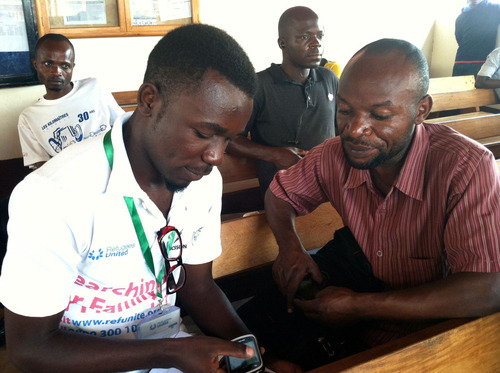
2: Failing to Involve the User
When we first formed REFUNITE, it was meant as an agency-only platform to help collect, curate, and distribute data on separated families. Our goal was to help aid agencies collect data in a systematic and collaborative way. Place last seen. Name. Tribe. Village. We discovered fairly quickly that, it was not just about digitizing the way aid agencies handle and distribute data but also about including the most important actors in the equation: refugees themselves. By enabling refugees to register themselves through simple $5 phones, we scaled our operations and went from 10,000 registrations to 350,000. Our platform is built, shaped and modified in close coordination with refugees in Africa and the Middle East. This user focus drives all our activities. If it doesn’t work for them, it doesn’t work for us.
3: Failing to Involve the Private Sector
In this process, we discovered another “failure” that led us to our current position: the private sector was largely an untapped resource; often a place for smart people wanting to innovate for social good. In the beginning, only a handful of folks from the humanitarian sector would listen to our experiences from camps and our thoughts on innovation.
We had to shift our focus to forming relationships with tech companies who could help us build REFUNITE into what it is today: a safe and global missing persons network. Together, REFUNITE and Ericsson have brought Zain, Vodacom DRC, Safaricom, Telesom, Asiacell Iraq, AVEA Turkey and a number of other mobile network operators on board, thereby allowing us to reach families in camps and refugee prone areas on a scale and in a manner in which we could not have done by ourselves.
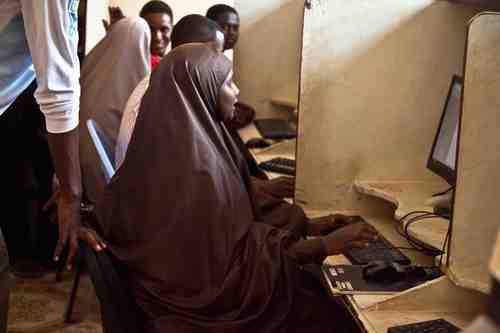
4: Neglecting Direct Communication with Refugees
This opportunity stemmed from another failure we had to correct: we should have focused even more on providing precise and up-to-date information to refugees. Easing their burden by letting them register in a few easy steps, through any device. Trying out a number of different avenues, from radio to community forums, we found that the most effective way to reach, inform, and register refugees was through SMS & USSD. USSD is a technology, which is very popular in Africa; often used for money-transfers.
This lightweight touch-point not only gave us a highly direct way of informing those in need of our services, but also made it much easier for families to register on their own terms, and at their own pace. Today, we are able to communicate directly with millions of families through SMS, thereby bringing hope amidst despair.
A failure is often a radical innovation in disguise. You don’t go from thinking about space travel to building a rocket ship in one day. You begin with small steps, mess things up, burn your fingers, learn and tinker until find you’ve succeeded.
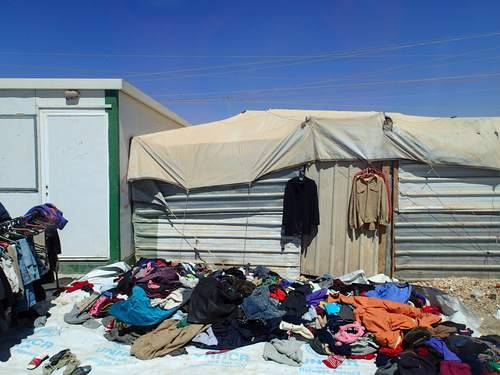
5: Underestimating the Importance of an Entrepreneurial Mindset
Which brings us to the fifth failure: mindset. Looking back, we should have established a team of folks with an entrepreneurial mindset – both internally and externally. One of the reasons we’ve been able to scale so fast and bring so many families onto the platform, is due to the goodwill and collaborations with driven, entrepreneurial and dedicated staff and volunteers, spanning refugee families wanting to give back to their communities to passionate staff from organizations like Ericsson, IKEA Foundation, the Omidyar Network, and a host of others. All people who know that, to find a success, you have to test, fail, and grow.
If we hadn’t experienced resistance from the get-go, we would most likely never have fallen out into the world with our penchant for rapid prototyping, risks, and humbling mistakes. We were empowered to do this by refugees who keep us in check and by people from the world of technology, iterations, and risk-taking. Folks who know that, a brilliant idea can take many versions to find its most successful self.
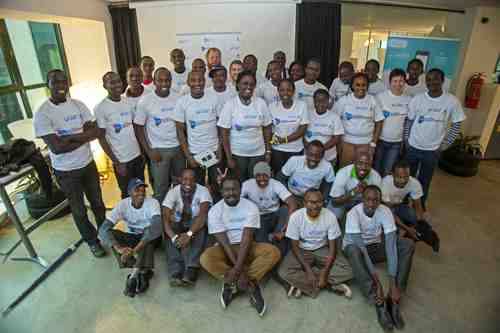
NOTES TO EDITORS
- Media contact: Ida Jeng, Communications Director: ij@refunite.org
- More info: www.refunite.org.
- Photo 1: Christopher and David Mikkelsen, founders of REFUNITE. Photo 2: REFUNITE, Ericsson and partners at the Clinton Global Initiative in 2010. Photo 3: A REFUNITE volunteer in the process of registering a refugee in Kampala, Uganda. Photo 4: A refugee at a computer station in Daaab Refugee Camp in Kenya. Photo 5: Zaarari Refugee Camp in Jordan. Photo 6: From REFUNITE’s and Ericsson’s Global Hack for Good in Nairobi, Kenya.


